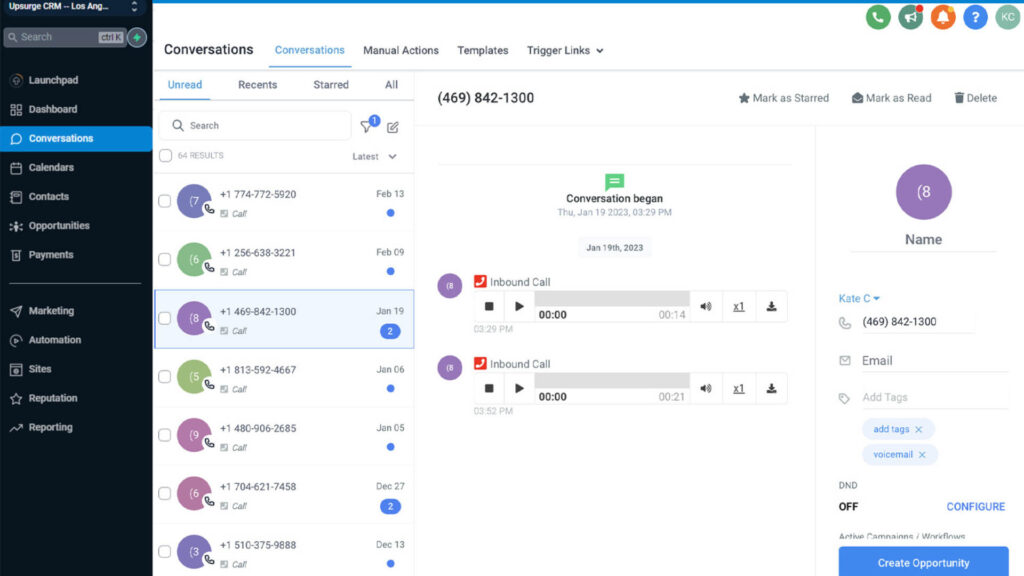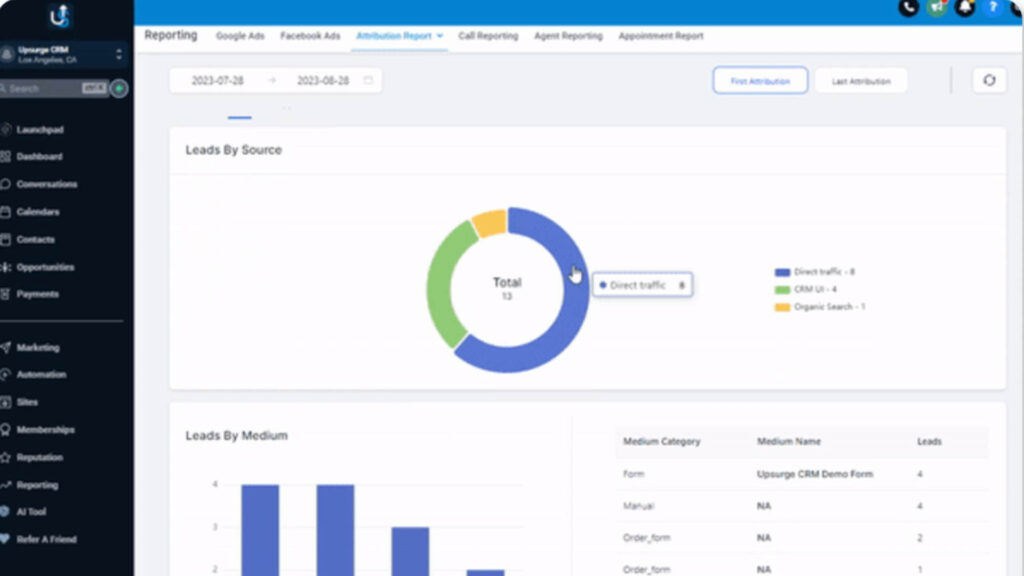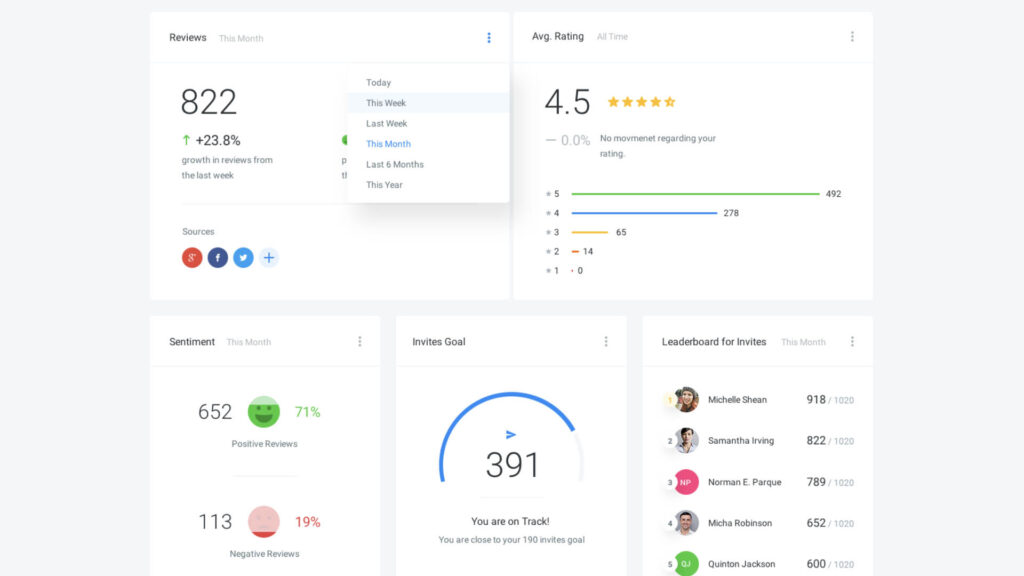
Missed calls can significantly impact customer satisfaction, lead to lost revenue, and create unnecessary operational challenges. Customer Relationship Management (CRM) systems offer innovative solutions to help businesses manage and reduce the number of missed calls, thereby improving overall customer engagement and streamlining operations.
This article explores how CRM can assist in reducing the cost associated with missed calls and enhancing customer experience.

When a potential customer attempts to reach a business and the call goes unanswered, it sends a message of unavailability and disinterest. This can lead to frustration and disappointment, as customers often have inquiries that require immediate attention.
Customers are likely to seek alternatives if they feel their needs are not being promptly addressed. Consequently, businesses must recognize that every missed call represents a lost opportunity to engage with a customer, which can severely affect their overall satisfaction and loyalty.
Each missed call can translate into lost revenue, as potential customers who do not receive timely responses may choose to take their business elsewhere. This lost revenue can accumulate quickly, especially for businesses that rely heavily on customer interaction for sales and service.
The cost of acquiring new customers is often much higher than retaining existing ones. Therefore, failing to respond to missed calls not only impacts immediate sales but also undermines long-term profitability, making it essential for businesses to address this issue proactively.
When customers repeatedly experience unanswered calls, it can create a sense of neglect, causing them to feel undervalued. This perception can escalate to a point where customers may abandon their loyalty and seek out competitors who prioritize responsive communication.
As businesses increasingly rely on customer relationships to drive growth, it becomes crucial to implement strategies that minimize missed calls and enhance customer support. Failing to do so can result in a significant loss of market share and customer trust, which are vital components for sustaining a successful business.

One effective solution for managing missed calls is the implementation of missed call text back services. These services allow businesses to send automated text messages to customers who have tried to reach them but were unable to connect.
By acknowledging the missed call and providing an alternative means of communication, businesses can significantly enhance customer interaction. This approach not only reassures the customer that their inquiry is valued but also opens the door for further engagement.
Leveraging missed call text back capabilities within a CRM system allows companies to maintain communication even when direct voice contact is not possible, thereby strengthening customer relationships.
To effectively manage missed calls, CRM software should include several key features tailored to enhance call handling. These features might encompass real-time tracking of calls, the ability to log missed calls, and integrated communication tools such as email and text messaging.
A comprehensive CRM system should provide analytics to help businesses understand call patterns and identify peak times when calls are likely to go unanswered. Furthermore, automated response systems that can trigger follow-up actions based on missed calls will streamline processes and ensure that no customer inquiry goes unaddressed, ultimately improving customer satisfaction.

Automation can play a pivotal role in addressing unanswered calls and improving overall response times. By using CRM systems that integrate call-handling automation, businesses can set up workflows that automatically respond to missed calls.
For instance, a CRM can trigger automatic email notifications or text messages to customers who have called and gone unanswered. This immediate acknowledgment not only helps to mitigate frustration but also provides the customer with the reassurance that their inquiry is important.
Businesses can utilize automated scheduling tools to offer customers the option to book a callback at their convenience, thereby enhancing engagement and reducing the likelihood of future missed calls.

Implementing a CRM solution to address missed calls involves several key steps.

Staff training is vital for enhancing the effectiveness of CRM in reducing missed calls. Proper training empowers employees to navigate the CRM system efficiently and utilize its features to manage customer interactions effectively.
By familiarizing staff with processes such as logging missed calls, responding to inquiries via automated systems, and tracking customer engagement, businesses can ensure that their teams are well-equipped to handle situations that may lead to missed calls.
Ongoing training sessions can instill a customer-centric mindset among employees, emphasizing the importance of timely communication and follow-up, ultimately leading to improved customer satisfaction and reduced call abandonment rates.
While implementing a CRM for missed call management offers numerous benefits, businesses often face several challenges in the process.
One common issue is resistance to change from employees who may be accustomed to traditional call handling practices. This can lead to a lack of engagement with the new CRM system, hindering its effectiveness.
Businesses may struggle with integrating CRM with existing communication tools, leading to complications in data synchronization and call tracking.
Ensuring that the CRM system is user-friendly and meets the needs of all staff members can be challenging. By proactively addressing these challenges through comprehensive training and support, businesses can enhance the likelihood of successful CRM adoption and minimize missed calls.

To measure the success of CRM in reducing missed calls, businesses should track several key performance indicators (KPIs). These may include the total number of missed calls, the average response time for missed calls, and the conversion rate of follow-up communications resulting from unanswered inquiries.
Monitoring customer satisfaction scores and feedback following interactions with the CRM can provide valuable insights into the effectiveness of the system. By consistently analyzing these KPIs, businesses can gain a clearer understanding of how well their CRM is performing in addressing missed calls and enhancing customer satisfaction.

Assessing the improvement in customer experience following the implementation of CRM for missed call management requires a combination of qualitative and quantitative methods. Businesses can conduct surveys and gather feedback from customers regarding their satisfaction with communication and responsiveness.
Monitoring metrics such as repeat call rates and customer retention can provide insight into how well the CRM is improving overall customer experience. By analyzing these data points alongside direct customer feedback, businesses can gauge the efficacy of their CRM solutions in creating a more responsive and engaging customer support experience.
Several tools can assist businesses in analyzing the impact of missed call solutions within their CRM systems. Analytical tools integrated within the CRM software can provide real-time reporting and visualization of call data, enabling businesses to identify trends and patterns in missed calls.
Customer feedback platforms can help gather insights regarding customer perceptions and experiences, thereby offering a more holistic view of the CRM’s effectiveness. By leveraging these tools, businesses can continuously evaluate their missed call management strategies and make data-driven decisions to enhance customer engagement and satisfaction.
Reducing the cost of missed calls is no longer a challenge with the right CRM system in place. By implementing features such as automated responses, call tracking, and data analytics, businesses can effectively minimize the negative impacts of missed calls on customer satisfaction and revenue.
A well-integrated CRM not only improves operational efficiency but also fosters stronger customer relationships by ensuring that no inquiry goes unanswered. By proactively adopting CRM solutions tailored to their needs, businesses can turn missed calls into opportunities, enhancing customer loyalty and driving sustainable growth.
Ready to transform your missed call management? Upsurge CRM is your all-in-one solution for tackling missed calls with ease. From real-time tracking to automated responses, Upsurge CRM ensures no customer inquiry slips through the cracks. Elevate your communication strategy and see the difference with the best CRM for your business!
